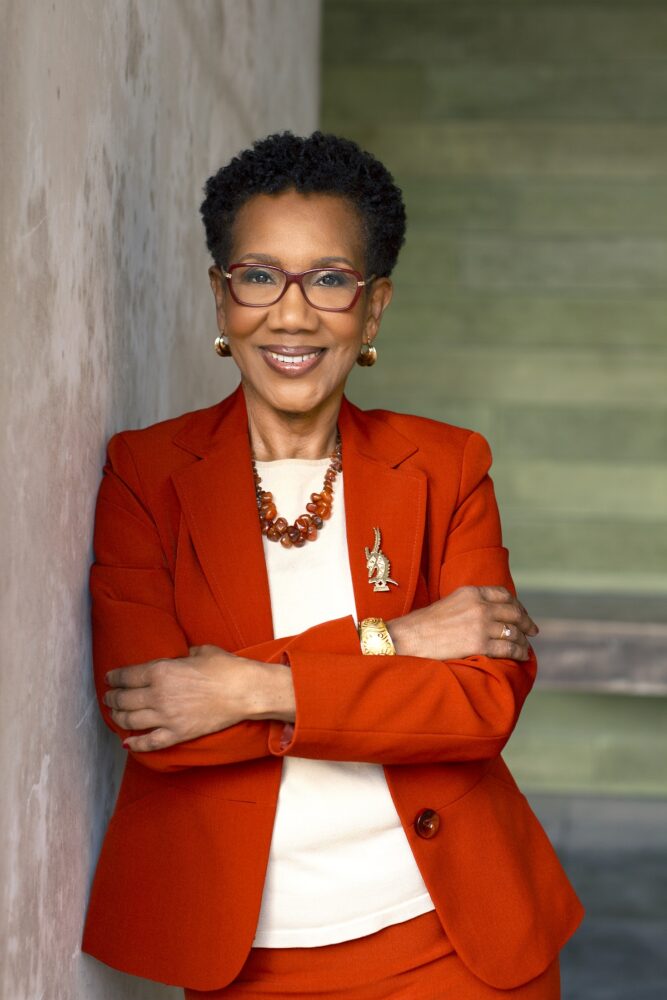Global Connections, Louisiana Roots
Honoring Joyce Marie Jackson, PhD, with a Lifetime Contributions to the Humanities Award
Published: February 28, 2022
Last Updated: May 31, 2022

Photo by Tina Bernard
Joyce Marie Jackson.
“I always wanted to come back to the South because I knew Louisiana would be one of my work sites,” she explained. “New Orleans is my cultural happening place.”
Jackson ended up at Louisiana State University and is now chair of the Department of Geography and Anthropology, and the James J. Parsons Endowed Professor. In addition to teaching subjects in her field, Jackson has published numerous cultural studies, on everything from how the Winnsboro Easter Rock ceremony can be traced back to antebellum days to how New York’s Apollo Theatre shaped American entertainment. Her documentary film, Easter Rock, premiered at the 2016 Ethnografilm Festival in Paris, France.
Although her studies have run the gamut, Jackson’s focus has always revolved around rituals. She has traveled the globe studying healers in Senegal, voodoo practitioners and artists in Haiti, and Brazil’s Boa Morte, or Sisterhood of the Good Death, a group of women who pooled money to purchase people from slavery, Jackson said.
Jackson has also curated several exhibitions, including co-curating, with her late husband J. Nash Porter, the Smithsonian exhibit The New Orleans Black Mardi Gras Indians. She is currently at work on a film that connects the Indians with mid-twentieth-century New Orleans music.
Jackson has enlisted her LSU students in much of her field work. For several semesters following Hurricane Katrina, Jackson brought students into New Orleans to assist nonprofits and community centers. She used that recovery experience in her field work in Haiti, when she visited the Caribbean nation after the 2010 earthquake. She visited Senegal about a dozen times with three study abroad programs involving LSU students.
“Louisiana is my base, my foundation,” she said. “I’ve gone out into the world to see how we are all alike and how we are all different.”
Currently, Jackson is working on three books. She will expand her cultural history of Fazendeville, an African American community once located on what is now the Chalmette Battlefield, a study originally created through the National Park Service. She plans to assemble her years of studying international ritual into a tome. “The ritual in Brazil is the one I’ll close out with,” she said. And she’s in the process of collecting submissions for an anthology titled Blacks in the Red Stick: The African American Presence in Baton Rouge.
In addition, Jackson operates Cultural Crossroads, a nonprofit that works in the literary, visual and performing arts, music, and community engagement, both within Louisiana and internationally. Her tireless community work was instilled in her at an early age, she said.
“I’m always trying to give back,” she explained. “I saw my parents doing that all of their lives, so I knew I had to do it too.”
Freelance journalist Cheré Dastugue Coen is the author of Exploring Cajun Country and Forest Hill, Louisiana: A Bloom Town History. She also writes novels under the pen name of Cherie Claire.
